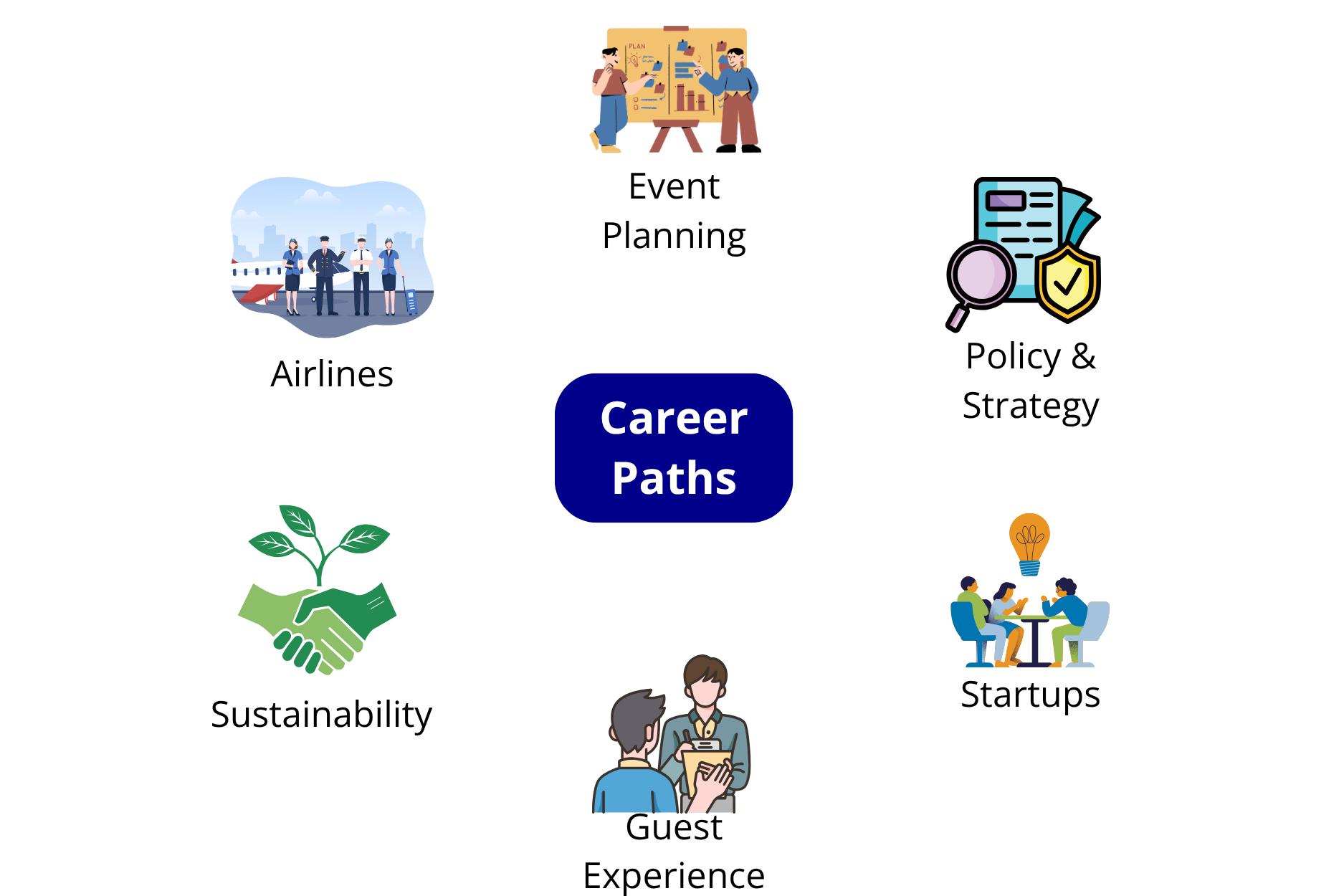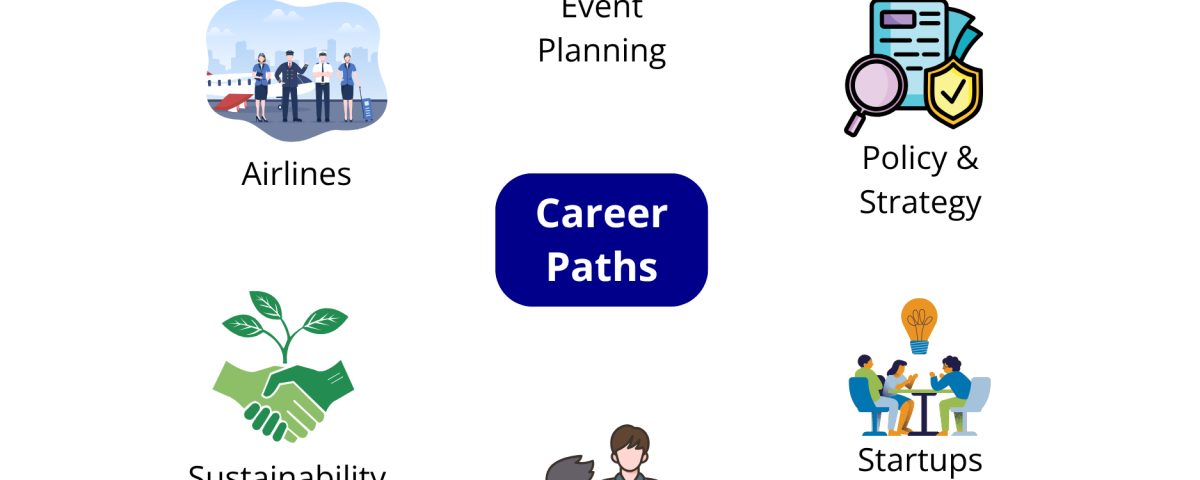
Dharmendra Kumar ThakurRecruitment Manager
May 26, 2025Tourism and Hospitality Management: A Global Gateway to Career Opportunities
A degree in tourism and hospitality management is a open door to the world, not just a degree. It is a dynamic, people-centred industry that encourages economic growth, crosses cultural boundaries, and provides countless job options globally. Studying tourism and hospitality management has become one of the most productive and future-proof occupations due to changing travel habits and increased global connection.
A Global Industry with Local Impact
Hospitality and tourism contributes over $9 trillion to the global economy as well as more than 300 million jobs worldwide. It varies from managing hotels and luxury resorts to airlines, cruise ships, destination marketing, and ecotourism planning.
Tourism in Malta is not merely an economic pillar—it's a lifestyle. With its breath-taking Mediterranean seafront, ancient sites, and round-the-clock tourists, Malta is a natural center of immersion, real-world training in this successful sector.
Why Choose Tourism and Hospitality Management?
Diverse Global Career Pathways
A degree in Tourism and Hospitality Management unlocks careers in:
- International hotel and resort management
- Airline and cruise operations
- Eco-tourism and destination sustainability
- Events and conference planning
- Tourism policy and strategic planning
- Travel startup and digital tourism platforms
- Guest experience and customer relationship management
Transferable Skills and Worldwide Demand
Students gain knowledge in leadership, cultural intelligence, customer service, marketing, finance, and digital innovation skills that are valued in nearly every region of the world.
Business Meets Experience
This program merges core business knowledge (e.g., operations, HR, marketing) with creativity and people-centric thinking for those who enjoy both structure and service.
Why Study Tourism and Hospitality Management at EAAS?
Selecting the right institution to launch your career in tourism and hospitality is just as important as choosing the industry itself. The European Academy of Advanced Studies (EAAS) offers more than just academic qualifications, we provide a career-ready education rooted in a global perspective, practical experience, and industry relevance.
Location at the Heart of European Tourism
Located in Malta one of Europe’s top tourism destinations, EAAS gives students direct access to a thriving hospitality sector. The island is a real-world laboratory where students learn among luxury resorts, global hotel chains, historic landmarks, and a multicultural visitor base.
Practice-Oriented Academic Programs
Our Tourism and Hospitality Management programs are built on applied learning. Students acquire the skills needed to manage, innovate, and lead in the dynamic global tourism industry through project-based coursework, field research, and local case studies.
International Faculty and Industry Connections
EAAS faculty bring academic excellence and industry experience from Europe, Asia, and the Middle East. We partner with leading hotels, travel agencies, and tourism boards to provide real-time exposure and internship pathways that can lead directly to employment.
Career-Focused Curriculum
From hospitality technology and event management to sustainable tourism and digital marketing, our curriculum is designed to match global industry needs. Students graduate with a toolbox of professional skills, ready for leadership roles in both established companies and emerging travel startups.
Supportive Student Environment
At EAAS, Our personalized academic advising, career mentoring, and multicultural community ensure each learner is supported throughout their journey from enrolment to employment.
Pathway to Global Careers
A degree from EAAS opens doors across borders. Whether your ambition lies in managing a luxury resort in Dubai, launching an eco-tourism venture in Kenya, or organizing global conferences in Europe, your pathway to global careers can begin here.
A Future-Ready Field
Sustainable travel is no longer optional
In today's tourism landscape, sustainability is not so much a trend as it is a necessity. Governments have a responsibility to ensure that the destination management organizations and travel providers put eco-conscious policies into place to reduce the impact this industry has on climate change. Travellers now go for destinations that conserve natural resources, work with local economies, and protect cultural heritage from carbon offsetting accommodations and plastic-free to community-based tourism initiatives. In tourism, students and practitioners need to understand more about guest satisfaction, stewardship, and ethically working.
Technology is transforming the industry
Digital transformation is wreaking some havoc in the traditional ways of operation in the tourism and hospitality industry. Virtual bookings and AI chatbots tend to simplify customer service and make life a bit easier for travellers. In these smart hotels, IoT takes charge of lighting, climate control, and room service. Mobile tourism applications ensure that one has navigation, itinerary planning, and a multilingual app right there on their smartphone. Entering this field requires any student to be fluent with not only service delivery but also in the digital tools and platforms constituting modern guest experiences.
Experience-based travel is rising
The era of checklist tourism is giving way to intention, experience-driven travel. These travellers want more than sights to see; they want to connect, have stories to share, and feel that genuine engagement. Tourism is now very personal: cooking with one of the locals in Sicily, conservation work in Kenya, or traveling to Peru to observe indigenous traditions. This shift creates a demand for professionals designing, selling, and facilitating meaningful, custom experiences essentially tailored to a place's culture and value system and the traveller’s personal interests.
Why Study in Malta?
Malta is one of the most popular and culturally diverse travel destinations in Europe that provides students studying tourism and hospitality with an incredibly engaging educational experience. Malta turns academic knowledge into practical implementation with its unique combination of historical significance, modern facilities, and a thriving tourism industry.
Real-World Case Studies from Local and Global Partners
Malta is home to a diverse range of tourism enterprises, ranging from luxury resorts and boutique hotels to global hospitality corporations. By studying the operations, marketing plans, and service models of actual businesses operating in the Maltese and larger Mediterranean setting, students obtain personal knowledge through case studies and real-world projects.
Internship Opportunities Across the Sector
Malta offers a wide range of internship options, including front desk management at a hotel by the sea, digital marketing in a travel agency, and logistical planning for international conferences. Through local and foreign employer relationships, these placements frequently result in employment in addition to the development of professional skills.
A Multicultural Learning Environment
Malta provides a naturally diverse environment as a destination for international students, expatriates, and tourists. This environment is perfect for fostering cross-cultural communication abilities, global service standards, and a thorough comprehension of the expectations of foreign visitors—all of which are essential in the travel and hospitality sector.
Safe, Sunny, and Inspiring Atmosphere
Malta provides more than only academic achievement with its beautiful coasts, lively student community, and more than 300 days of sunshine annually. It offers a secure, friendly, and inspiring setting for students to live, learn, and develop both personally and professionally.
Your Global Career Starts with the Right Foundation
Tourism and Hospitality Management isn’t just about travel—it’s about leadership, innovation, and creating moments that matter. Whether you dream of managing a five-star resort in Bali, launching a boutique travel agency in Europe, or designing sustainable travel policies for governments, this field offers both adventure and impact.

